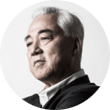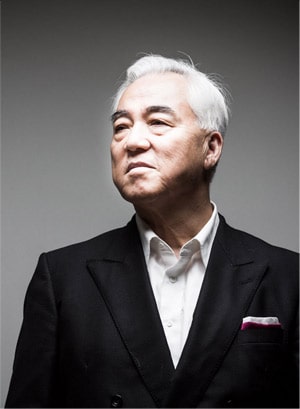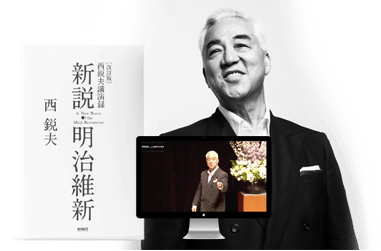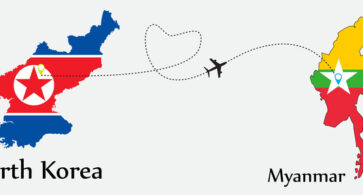【英文史料】
GENERAL HEADQUARTERS
SUPREME COMMANDER FOR THE ALLIED POWERS
Government Section
1 February 1946
MEMORANDUM FOR THE SUPREME COMMANDER:
SUBJECT: Constitutional Reform.
1. The question of constitutional reform of the Japanese governmental system is rapidly approaching a climax. Several proposed revisions of the Japanese constitution have been drafted by governmental and private committees. Constitutional reform may well be a cardinal issue in the coming election campaign.
In these circumstances, I have considered the extent of your power as Supreme Commander to deal with fundamental changes in the Japanese constitutional structure, either by approving or disapproving proposals made by the Japanese government or by issuing orders or directives to that government. In my opinion, in the absence of any policy decision by the Far Eastern Commission on the subject (which would, of course, be controlling), you have the same authority with reference to constitutional reform as you have with reference to any other matter of substance in the occupation and control of Japan.
2. You have authority from the Allied Powers to proceed with constitutional reform. In accordance with the agreement among the governments of the US, USSR, UK and China, the President of the United States designated you as Supreme Commander for the Allied Powers to "take such steps as you deem proper to effectuate the surrender terms". (Par. 5 of Designation). By the Instrument of Surrender, the Japanese Government accepted the provisions of the Potsdam Declaration. (Par. 1 of Instrument). The Potsdam Declaration requires the Japanese government to "remove all obstacles to the revival and strengthening of democratic tendencies among the Japanese people", and the establishment "in accordance with the freely expressed will of the Japanese people of a peacefully inclined and responsible government". (Pars. 10 & 12 of Declaration.)
To achieve this alteration in the nature of Japan's governmental institutions requires fundamental changes in the Japanese constitutional structure; and such alteration is essential to the execution of the Potsdam Declaration. Therefore, your authority to effectuate constitutional reform designed to develop a form of government responsible to the people is implicit in the terms of your designation by the Allied Powers as Supreme Commander for the purpose of enforcing the surrender terms.
3. You have authority from the Joint Chiefs of Staff to proceed with constitutional reform. The Joint Chiefs of Staff have directed that you "exercise your authority as you deem proper to carry out your mission," (Cable No. WX 60333 dated 7 September 1945). Your mission as set forth in the basic occupation directive for Japan (JCS 1380/15) includes: (a) carrying out measures for "the strengthening of democratic tendencies and processes in governmental economic and social institutions", (b) permitting and favoring "changes in the direction of modifying the feudal and authoritarian tendencies of the government," and (c) informing the Japanese that "they will be expected to develop a non-militaristic and democratic Japan", (Pars. 3a, 3c and 4c of Directive).
It is clear that you cannot accomplish these aspects of your mission without effecting fundamental changes in the Japanese constitutional structure. Since the development of a democratic Japan has been explicitly made a part of your mission, you have ample authority from the Joint Chiefs of Staff to approve or order constitutional reform designed to achieve the desired results.
4. Your authority to make policy decisions on constitutional reform continues substantially unimpaired until the Far Eastern Commission promulgates its own policy decisions on this subject. The Charter of the Allied Council for Japan requires you to consult and advise "with the Council in advance of orders on matters of substance" but your "decisions upon these matters shall be controlling", (Par. 5 of Charter). The sole limitation imposed upon your authority to effect constitutional reform exists in case a member of the Council disagrees with a proposed order "regarding the implementation of policy decisions of the Far Eastern Commission on questions concerning ****fundamental changes in the Japanese constitutional structure" (Par. 6 of Charter). In such event your order would be referred to the F.E.C. to determine whether it properly implemented the F.E.C. policy decision.
In the absence of any F.E.C. policy decision, however, there is no restriction upon your executive authority except (a) insofar as the obligation for advance consultation with the Allied Council limits the manner in which your authority is exercised, and (b) insofar as the F.E.C. may review any action you may take. Under its charter, the F.E.C. may, at the request of any member, review any directive issued to you or any action taken by you, (Par. II, A, 2. of Charter). Similarly, no directive may be issued to you by the Joint Chiefs of Staff or any other agency of the United States Government "dealing with fundamental changes in the Japanese constitutional structure" without "the attainment of agreement in the Far Eastern Commission", (Par III, 3). Neither of these provisions, however, precludes your taking action pursuant to existing directives to approve or direct constitutional reform.
5. Should the F.E.C. eventually promulgate a policy directive involving changes in the constitutional structure, your decision in the issuance of directives (orders) thereon would not be controlling if any member of the Allied Council for Japan objected. It is my opinion that the word "order" in the charter of the Allied Council is used in the sense of compulsion and would not embrace a mere approval by you of constitutional reform measures submitted to you by the Japanese government, although your action in approving the same would be subject to review by the F.E.C. under the general review authority of its charter.
6. To recapitulate, I am of the opinion (a) that you now have the unrestricted authority to take any action you deem proper in effecting changes in the Japanese constitutional structure -- the only possible restriction being upon action taken by you toward removal of the Emperor, in which case you are required to consult with the Joint Chiefs of Staff; (b) should the F.E.C. issue a policy directive dealing with the matter of constitutional reform, then and in such event the issuance of any constitutional reform directive (order) upon the Japanese government would be subject to objection by any member of the Allied Council for Japan and your decision would not be controlling.
7. The above opinion represents the composite view of all officers of the Government Section who have examined this question.
COURTNEY WHITNEY
Brigadier General, U.S. Army
Chief, Government Section.
この記事の著者

西 鋭夫
1941年大阪生まれ。関西学院大学文学部卒業後、ワシントン大学大学院に学ぶ。
同大学院で修士号と博士号取得(国際政治・教育学博士) J・ウォルター・トンプソン広告代理店に勤務後1977年よりスタンフォード大学フーヴァー研究所博士号取得研究員。それより現在まで、スタンフォード大学フーヴァー研究所教授。
西 鋭夫

1941年大阪生まれ。関西学院大学文学部卒業後、ワシントン大学大学院に学ぶ。
同大学院で修士号と博士号取得(国際政治・教育学博士) J・ウォルター・トンプソン広告代理店に勤務後1977年よりスタンフォード大学フーヴァー研究所博士号取得研究員。それより現在まで、スタンフォード大学フーヴァー研究所教授。











